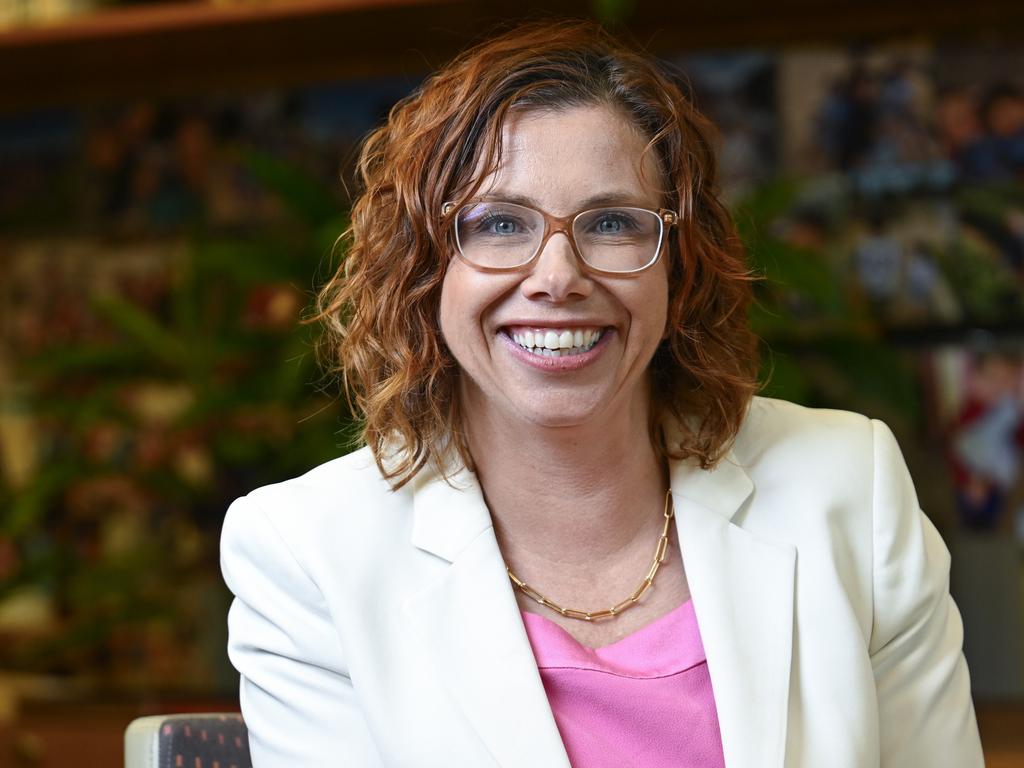NDIS notches $600m saving, as Amanda Rishworth flags program review
More than $600m has been shaved off the projected budget forecast for NDIS in the first seven months of the financial year despite almost 20,000 new participants joining the scheme in the past quarter alone.

More than $600m has been shaved off the projected budget forecast for NDIS in the first seven months of the financial year despite almost 20,000 new participants joining the scheme in the past quarter alone.
A quarterly report from the National Disability Insurance Agency reveals that reforms implemented by former NDIS Minister Bill Shorten last year to bring ballooning costs under control have delivered better than expected savings, with the reduced growth target of 8 per cent on track to be met by 2026-27.
The savings have come through a fraud crackdown, a ban on tops up to plans within the financial year – known as intra-plan inflation – and the slashing of inappropriate services being accessed by some participants.
The eligibility criteria remain unchanged despite Mr Shorten last year signalling plans to tighten some requirements.
Expenditure for the seven months to January 31 has been revised down to $26.6bn against a budgeted $27.2bn.
The government in October last year was forecasting a budget variation downwards of $600m for the entire 2024-25 year.
The total savings are now expected to be significantly higher for the year.
This has brought the scheme’s growth rate down to 11 per cent – from a target of 12 per cent – and within sight of the national cabinet’s growth target of 8 per cent by 2026-27.
The Australian revealed last October that the reforms to NDIS would see $19bn less spent over the next four years than would have been the case. This forecast remains unchanged.
However, cost pressures will remain, with the number of people seeking to access the scheme growing. More than 692,000 Australians are on an NDIS plan.
“We are continuing our work with people with disability to ensure the NDIS is delivering the best outcomes possible for participants, while improving the sustainability of the world-leading scheme,” said NDIA chief executive Rebecca Falkingham.
“We know there is more work to do to further strengthen the NDIS – we are absolutely committed to continuing to do this in partnership with the disability community.”
The budget savings come as NDIS Minister Amanda Rishworth revealed there will be no limiting of which disabilities are eligible to access the $44bn scheme, despite the federal government’s push to contain ballooning costs.
She also flagged her plans to appoint a new panel of technical experts to advise government on how effective some programs were, and walked back a commitment by her predecessor, Bill Shorten, to introduce foundational supports – to assist Australians with low-level disabilities so they did not join the NDIS – by July 1.
Australian Federation of Disability Organisations chief executive Ross Joyce said Ms Rishworth’s commitment, revealed in The Australian, was welcome because it was “important that all people with disability are able to access the scheme”.
“It’s good that there isn’t a look-see at particular disabilities that may not be favoured to go on the scheme, (which) is what appeared to be the case prior to this statement from the Minister, so we welcome that,” he said.
Mr Joyce said the autism community had been concerned they could be targeted in cutbacks, adding that it was important that Australians with autism continue to have “access to the support and services that they need to live an ordinary life.”
He said he was surprised Ms Rishworth was planning to launch a new review into the services and programs being accessed through the NDIS because there had “already been reviews and panels set up to look at these things”.
Mr Joyce has pushed for a dedicated disability minister to represent the 5.5 million Australians with a disability.
“There’s a need to have a dedicated minister for disability and also an agile department, that can operate across all of government, helping these things, inclusive of working with the relevant state territory governments,” he said.
Disability services provider Aruma chief executive Martin Laverty, who is also a former NDIA board director, said the sector supported cost-cutting measures, as well as bringing forward cost reforms that would make the scheme more equitable.
“We in the not-for-profit sector stand ready to back the government in adopting a more urgent drive on three NDIS cost corrections,” Dr Laverty said.
“Eligibility and participant plan budget changes can halt ballooning scheme costs faster.
“Implementing foundational supports sooner rather than later will offer children options outside the scheme.
“Bringing forward tiered or differential price reform to end the lunacy of paying unregistered sole workers $70 an hour, at a time when registered not-for-profits supporting the most complex NDIS participants are going broke, will prevent service disruption of too important to fail not-for-profits.”





To join the conversation, please log in. Don't have an account? Register
Join the conversation, you are commenting as Logout